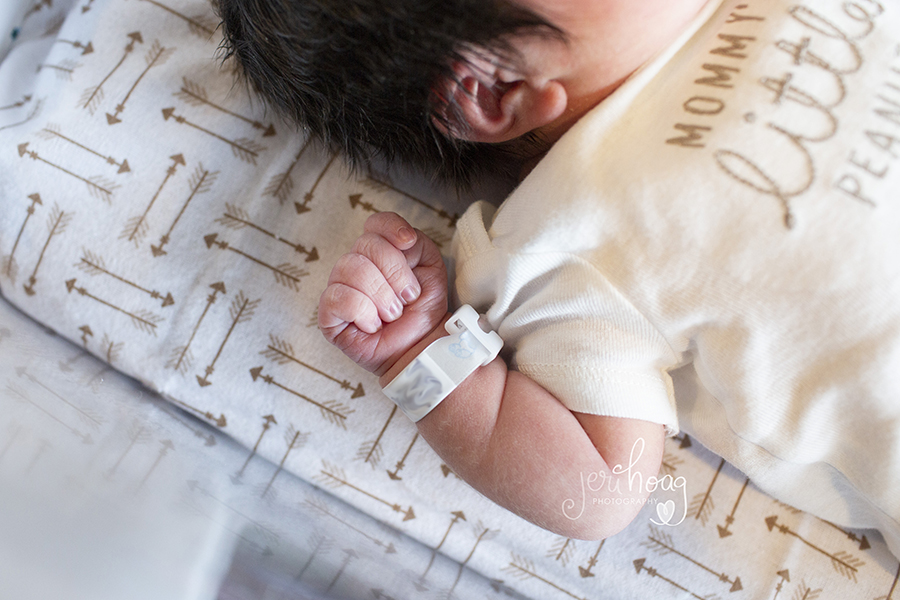Learn About New Hospital Policies That Could Affect Your Labor and Delivery Experience
Your pregnancy is meant to be an exciting, happy time. But during the COVID pandemic, you may be experiencing increased anxiety and stress over your own health and that of your newborn baby’s.
The good news is that doctors say pregnant women are not more likely to be infected with Coronavirus than the general public. The bad news is that your birth plan and plans for visitors during your newborn’s first few weeks and months at home will likely be drastically altered by new safety guidelines.
What are the symptoms of COVID-19?
COVID-19, also known as the Coronavirus, is a respiratory illness. Symptoms can include:
- Fever
- Cough
- Shortness of breath
- Fatigue
Should I go to the hospital if I am pregnant and have COVID-19 symptoms?
The Centers for Disease Control recommend you get immediate medical help if you are experiencing any of the emergency warning signs for the Coronavirus.
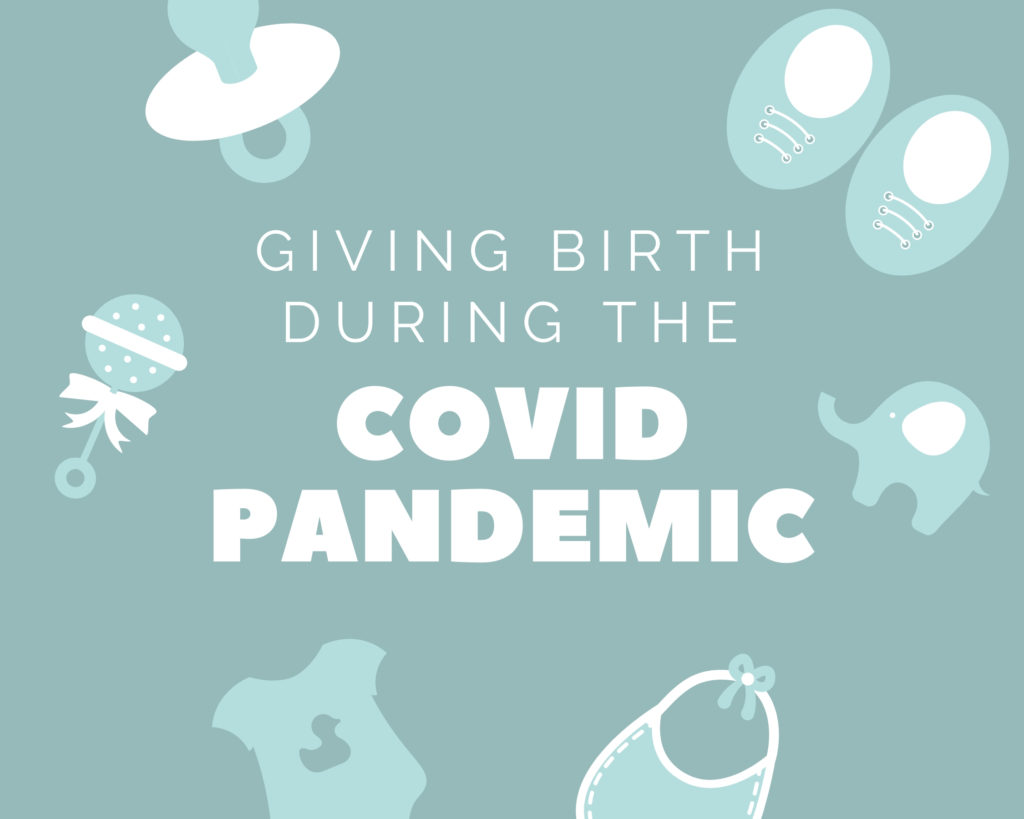
The Emergency Warning Signs Include:
- Trouble breathing
- Persistent pain or pressure in the chest
- New confusion or inability to arouse
- Bluish lips or face
If I have Coronavirus, will my unborn baby have it too?
Doctors still aren’t sure if pregnant women who have the Coronavirus can pass it to their unborn baby. One small study of women diagnosed with COVID-19 found no evidence of the virus in the mother’s amniotic fluid, umbilical cord blood, or breast milk. However, doctors caution that not enough research has been done to give a definitive answer.
After your baby is born, he is susceptible to the virus. Hospitals and birthing centers have made drastic changes to their policies and practices to protect parents and babies from the virus.
As your due date gets closer, you might be feeling a little more anxious than most expectant moms about the labor and delivery process. After all, your birth plan may have been scrapped due to all the new Covid-19 precautions. In some cases, your partner and/or support workers like doulas may not be able to attend your labor and delivery. Being as prepared as possible is key to helping you remain calm, confident, and less anxious in the days and weeks leading up to your baby’s delivery.
Here are some questions you should ask your health care provider:
- Can my partner be in the room during labor and delivery?
- Can my doula attend the labor and delivery?
- If I am giving birth via c-section, will my partner be allowed in the operating room?
- Will I be separated from my newborn baby after he or she is born?
- Will the length of my stay be affected by the Coronavirus pandemic?
- Will I still have access to pain management, including epidurals?
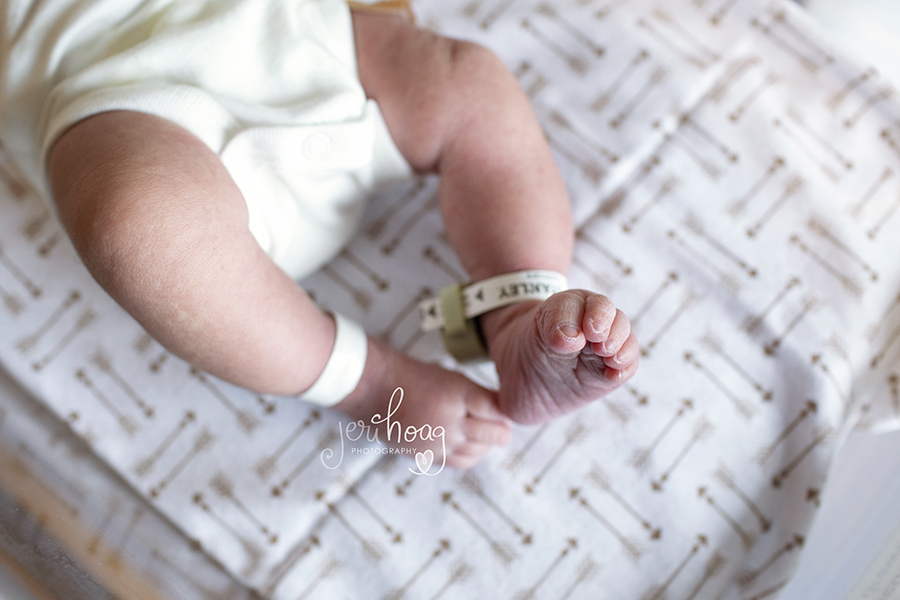
What about pregnancy, birth and parenting classes?
You may have signed up for birth and parenting classes prior to your baby’s arrival. Unfortunately, doctors say live, hands-on classes are just not safe these days. However, there are plenty of great resources for online labor, delivery, and newborn baby care classes. You can ask your healthcare provider if your local hospital is offering any classes online.
Here are some online educational resources for expectant and new parents:
Lamaze International has a great mix of pregnancy, labor, delivery, and parenting resources. Some are free and some are paid. Click here to see Lamaze International’s pregnancy and parenting resources.
The online parenting resource BabyCenter also has an entire library of FREE labor and delivery videos. Click here for access.
WomensHealth.gov has free articles on birth, breastfeeding, and parenting topics. Click here to be taken to their page.
Check with your doctor to find a lactation consultant you can contact after you go home with your baby. Even though they can’t help you in person, they can still offer support and advice over the phone or online. You can also find a lactation consultant by visiting the La Leche League’s website. To go to their site click here.
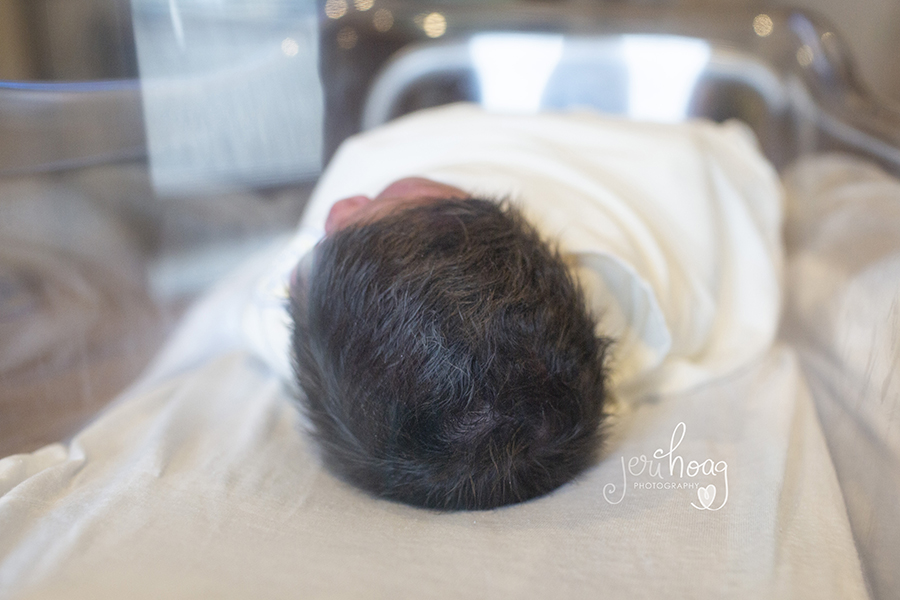
How to protect my newborn baby from Coronavirus
As sad as it seems to keep your new baby at a distance from excited family and friends, it’s important that you do so in order to limit his or her exposure to people who may have the virus.
Again, the Centers for Disease Control recommend the same precautions for new parents as for the general public.
Steps to protect yourself and baby from the virus include:
- Limit your exposure and your newborn baby’s exposure to anyone besides immediate family.
- Wash your hands frequently. Use soap and water, or hand sanitizer that has at least 60% alcohol.
- Avoid touching your eyes, mouth, and nose with unwashed hands.
- Make sure everyone who is around your newborn baby (and is not immediate family) wears a face mask, especially if out in public.
- When going out in public, maintain a minimum of six feet social distance between yourself and others.
- Clean and disinfect frequently touched surfaces like cell phones, door knobs, light switches, counter-tops, keyboards, toilets, faucets and sinks.
Can I breastfeed my newborn baby if I have Coronavirus?
The CDC recommends talking to your healthcare provider about whether or not to breastfeed if you have Coronavirus, or have been exposed to it. In the limited studies that have been conducted so far, researchers say the virus has not been found in breastmilk.
If you have been diagnosed with the virus but still wish to feed your baby breastmilk, the CDC recommends washing your hands and wearing a mask when nursing your newborn baby. They also suggest that new moms with COVID-19 can pump breastmilk and have someone who is not infected feed the baby. Just be sure to thoroughly wash the pump and all bottle parts after each use.
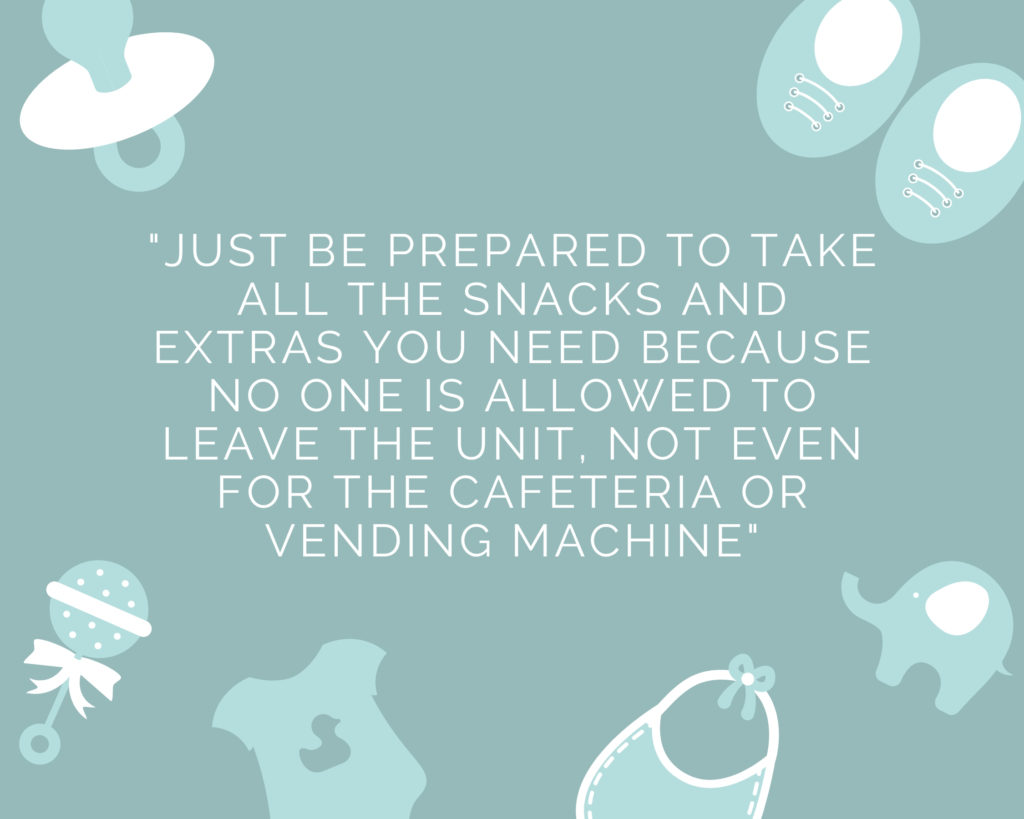
New moms share their COVID-19 birth experiences
Just be prepared to take all the snacks and extras you need because no one is allowed to leave the unit, not even for the cafeteria or vending machine.
-Jenni Crago
Only one person is allowed at the hospital. It must be the same person the whole time. If they leave, they can’t come back. They did make an effort to discharge early if all was well. We brought him home at less than 48 hours old. No one outside of our immediate family has met him other than through our glass front door. 🙁
-Heather Huff
Everyone in Labor and Delivery wore masks at all times, and full personal protective equipment during the actual birth. They discharged us at 24 hours instead of 48. The baby nursery was closed so the baby was in the room with us the whole time. We exited through a separate exit that only Labor and Delivery staff uses. I’m actually not sure if they would have allowed my husband to leave the unit because he didn’t try. We got our food delivered to the room. The nurses and doctors were fabulous. I would never have known there was a global crisis going on, aside from the masks being worn all the time. We didn’t have to wear masks in our room but when we came in and left, they gave us masks to wear.
-Heather Sears
Jeri Hoag Photography now empowering and instilling confidence through intimate boudoir photography for the everyday modern woman in St. George, UT/ Hurricane, UT/Washington, UT/Leeds, UT/Ivins, UT/Santa Clara, UT/Dammeron Valley, UT/Veyo, UT/Shivwits, UT/Littlefield, AZ /Las Vegas, NV/Mesquite, NV.

